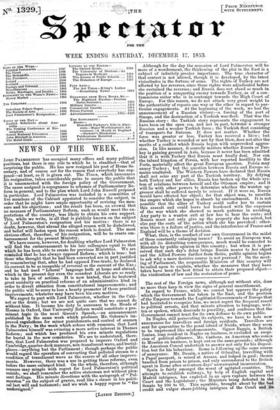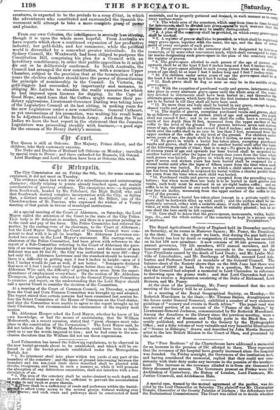The rest of the Forei g n news, althou g h not without stir,
does no more than keep in view the signs of general unsettlement. In regard to France, while we cannot bat approve the policy which the Government has taken in the East, and the position of the Emperor towards the Legitimist Governments of Europe that had hesitated to recognize him, we must regret the frequent resort to political arrests, and that minute attention to language, writ- ten or spoken, which descends to puerility, and confesses that the Government cannot trust for its own defence to its own public. In Naples, still persecuting its subjects, we have to note new annoyances for travellers and foreign residents. Travellers are sent for quarantine to the penal island of Nisida, where they seem to be imprisoned like misdemeanants. Signor Baggio, a British Ionian, long resident in Naples on business, is excluded on suspi- cion of political alliances. Mr. Carbone, an American who comes to Messina on business, is kept out on the same grounds; although the American Consul undertook to answer not only for his disposi- tion but for his behaviour. Rome is following up the same course of annoyance. Mr. Desain, a native of Gibraltar, travelling with a Papal passport, is seized at Arezzo, and lodged in gaol; thence bandied from prison to prison, and only surrendered to the British agent in Rome after seventeen days' unwarranted incarceration. Spain is fairly amongst the worst of agitated countries. The attempts to establish railways, by help of English capital and Madrid intrigues has exploded in an open rupture between the Court and the Legislature; the Ministers being defeated in the Senate by 105 to 61. This squabble, brought about by the bad credit and vulgar share-jobbing intrigues of the Court and As creatures, is expected to be the prelude to a coup d'etat, in which the adventurers who constituted and surrounded the Spanish Go- vernment will attempt to take a. more complete grasp of power and plunder.



































 Previous page
Previous page